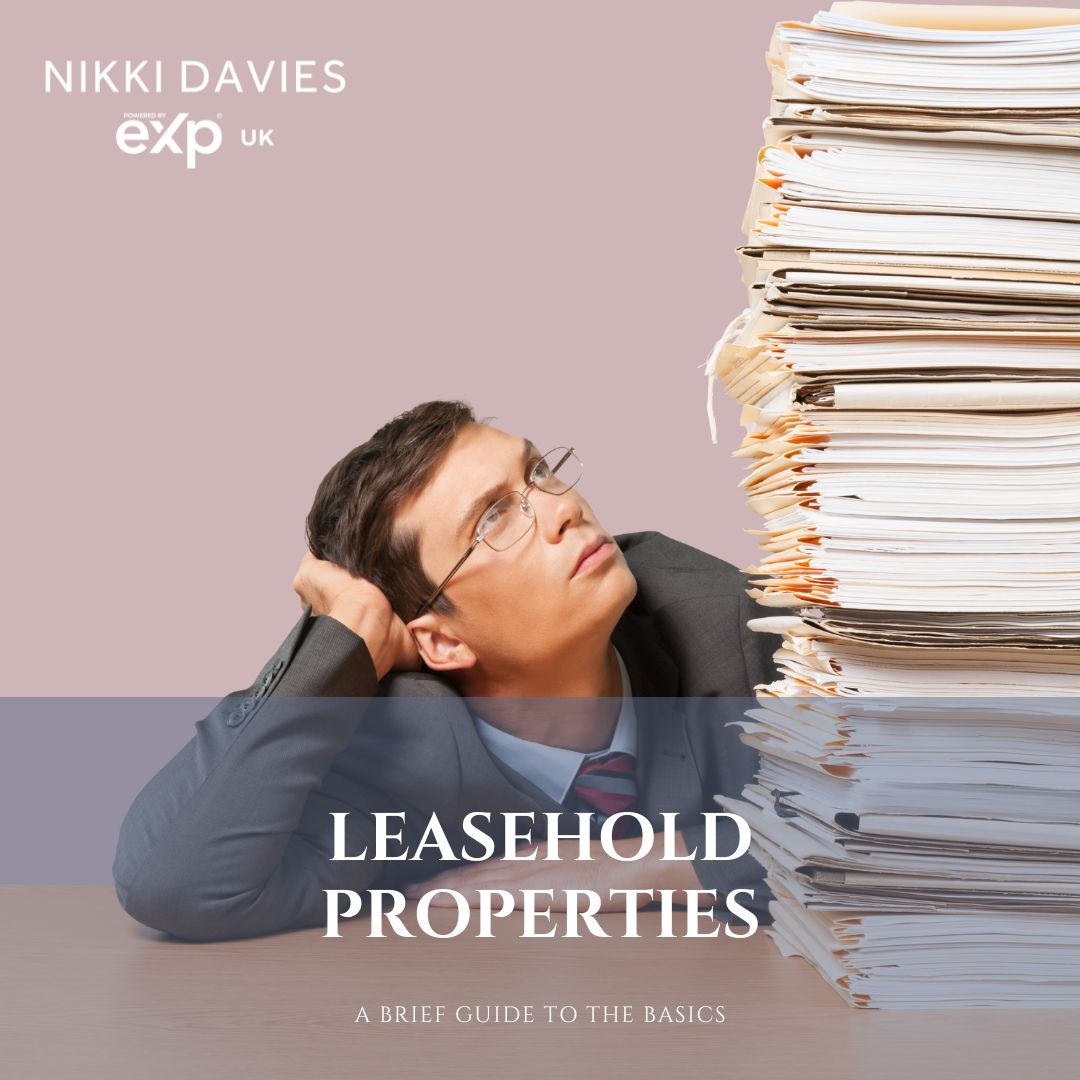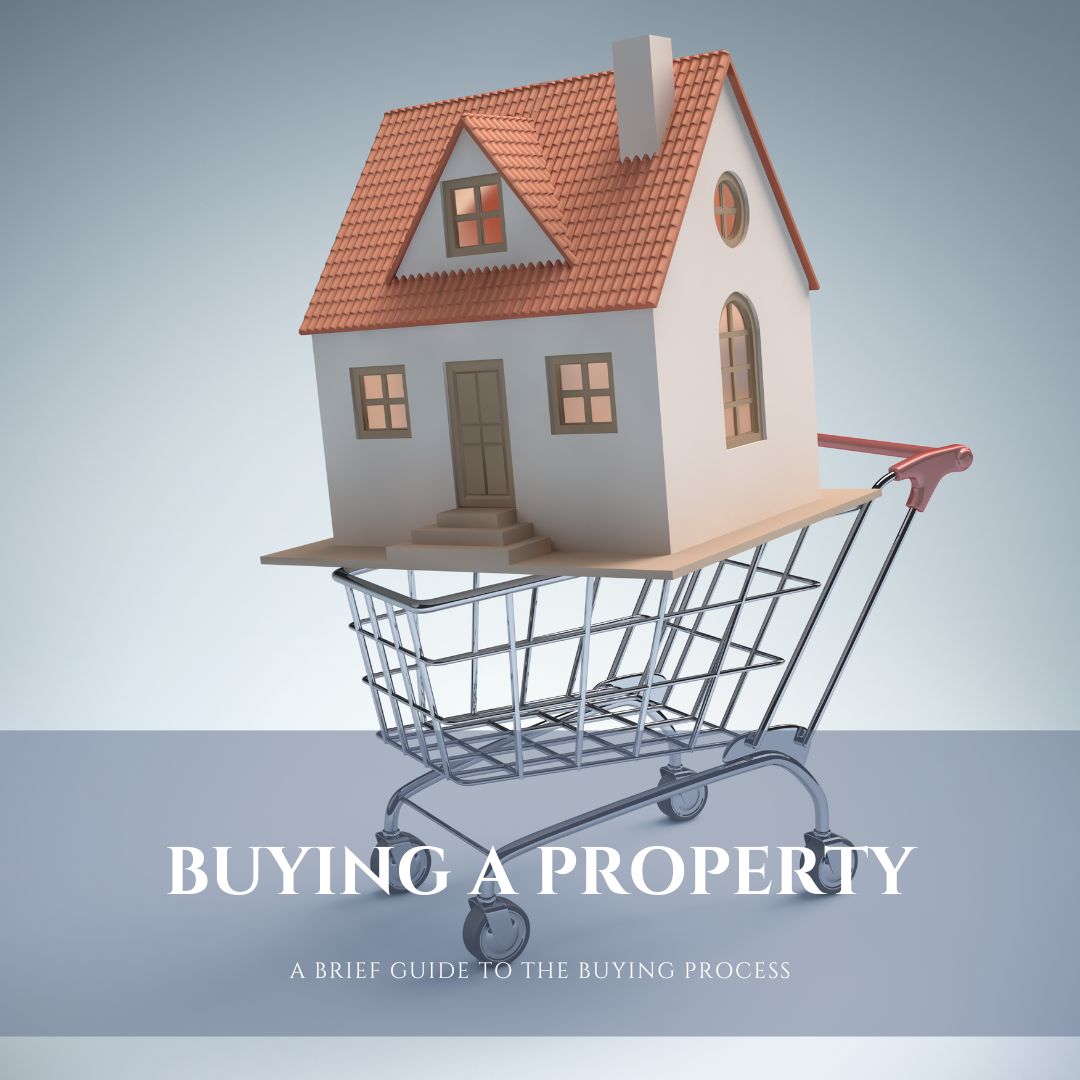Author: expnikkidavies
Rightmove House Price Index Report – April 2023
April 24th, 2023
Rightmove-HPI-24th-April-2023-Final
Rightmove have published their latest report – a copy of the full report is appended.
” Agents are reporting that many sellers have transitioned out of the frenzied multi-bid market mindset of recent years and understand the new need to tempt Spring buyers with a competitive price. The current unexpectedly stable conditions may tempt more sellers to enter the market who had been considering a move in the last few years but had been put off by its frenetic pace.” Tim Bannister, Rightmove’s Director of Property Science.
Is now a good time to sell or buy for you personally? Get in touch today and let’s talk things through over a cuppa (Yorkshire Tea for me please!).
Get in Touch
Getting the BEST price for your property
April 12th, 2023
One of the most important things when you sell your home is to get the best price possible for your home. But how do you make sure you get the best price?
There are 4 contributing factors to getting the best price for your home. The one thing to remember in all this, is that it’s the buyer who is going to give you the best price – the agent, presentation and the marketing will contribute to that, but it is the buyer that will pay it. Getting a buyer to pay more than they want too, needs competition. So, to get more buyers, the first thing you need is eyeballs:
More Eyeballs = more clicks = more enquiries = more viewings = competition = more offers = the highest price.
Property Condition
To maximise the price for your house it needs to be in immaculate condition – I’m talking new kitchens, new bathrooms, new carpets – a show home basically…But ‘immaculate condition’ is not usually possible, so don’t panic…
If you haven’t got the time or money to make your property ‘immaculate’ with new kitchens, bathrooms, carpets and everything else, then make sure it is presentable, clean & tidy when people view.
Get rid of the kids & dog, but present it as it should be presented. Don’t hide all the toys when you are selling a 4 bed detached family home – that is what creates emotion from the buyer. And when a buyer becomes emotionally attached to your property and can see themselves living there, they will pay what it takes to realise their visualisation!
Portals & Online Presentation
Make sure your property is on Rightmove AND Zoopla. Zoopla have claimed in the past that 32% of their buyers don’t visit Rightmove, so by listing your house with an agent that only advertises on one of these sites, you are losing eyeballs.
The basic premise of selling your house nowadays (and before the internet came along), was the more eyeballs you got on the property, the more viewers you would get and the more competition you would create, which would force the price up.
It hasn’t changed much since the internet, because the more eyeballs you get, the more clicks your advert will get and the more viewers your agent will be able to arrange, which will lead to more competition.
And don’t forget social media. Social media is a bit like the newspaper back in the ‘good old days’ where someone who isn’t actively looking to buy a property spots yours on Facebook or wherever and that entices them to enquire – impulse buyers!
Choose the right agent
Make sure you choose an agent who has an incentive to sell your property. But don’t choose someone who is ‘desperate’ to sell your property.
An agent who is giving their own fees away is clearly not the best negotiator, so would you trust them with negotiating the best price on your house? And be careful about when the fee is paid – if they are charging you all up front, or regardless of sale (which some of the agents who advertise on the telly do), then they have absolutely no incentive to sell your house, which sort of defeats the object of trying to sell your house and move!
Choose the right marketing strategy
This is so important and is part of choosing the right estate agent, but the marketing strategy is different for every property. For example, don’t choose an agent that tells you the highest asking price – this could actually lead you to achieving less than had you asked a ‘medium’ asking price because of the length of time the property could end up sitting on the market for.
Similarly, don’t use open days if they’re not appropriate. Use a strategy that’s going to help you achieve the absolute best price – that might be an informal tender, it might be a lower asking price because there could be lots of competition in your area, it might just be selling in the ‘usual’ way. A good estate agent should come up with an entire plan for you and your property, which suits your circumstances.
Getting the best price for your home is ultimately a good mix of all of the above points, but it does all come down to the estate agent that you choose – where they advertise, what advice they give you and how good they are at negotiating!
To find out more, contact Nikki Davies, Powered by eXp.
Get in Touch
Buying a leasehold property
March 18th, 2023
Buying a leasehold property in the UK can be a complex process and in my experience, many buyers are wary of buying a leasehold property.
However, it doesn’t have to be that way. This basic guide will give you an overview of the steps involved in buying a leasehold property and help you understand the key terms and legal obligations that come with it. Obtaining this information at the outset can give you the assurance you need or help you make the decision to move on before incurring costs of not only your money but yours and your chain’s valuable time. And don’t panic, this is for your solicitor to investigate – not you.
What is a leasehold property?
A leasehold property is a type of property where the buyer purchases the right to use the property for a fixed period of time, known as the lease term. The property is owned by the freeholder or landlord who grants the lease to the buyer. The buyer of a leasehold property will be required to pay ground rent, service charges and other fees to the landlord or management company.
Understand the lease
The lease is a legal document that sets out the terms and conditions of the leasehold property. It is important to read and understand the lease before buying the property. The lease will specify the lease term, ground rent, service charges, repair obligations, and other important details.
Get legal advice
It is important to seek legal advice from a solicitor who is experienced in leasehold property transactions. Your solicitor will review the lease and advise you on any potential issues or concerns.
Check the lease term
The length of the lease is an important consideration when buying a leasehold property. A short lease can affect the property’s value and may make it difficult to sell in the future. It is recommended that you aim to buy a property with a lease term of at least 90 years.
Check the ground rent
Ground rent is a fee paid by the leaseholder to the landlord for the use of the land on which the property is built. It is important to check the amount of ground rent and how it will be reviewed over time. Some leases have clauses that allow the landlord to increase the ground rent significantly over the term of the lease and you will need this information from the outset.
Check the service charges
Service charges are fees paid by the leaseholder to the landlord or management company for the maintenance and upkeep of the building and common areas. It is important to check the amount of service charges and what they cover. You will also want to find out whether these are subject to increases, how much they could potentially increase by and how often. You should also ask to see the service charge accounts to ensure that they are being managed correctly.
Check for any restrictions
Some leases may contain restrictions on what the leaseholder can do with the property. For example, there may be restrictions on keeping pets, making alterations to the property or subletting. It is important to check the lease for any such restrictions.
Check the management company
If the property is managed by a management company, it is important to check their reputation and track record. You should ask to see the management company’s accounts and check that they are managing the property correctly.
Consider enfranchisement
Enfranchisement is the process of buying the freehold of a leasehold property. If the lease term is less than 80 years, it may be worth considering enfranchisement as this can increase the property’s value and reduce future costs.
Get a survey
It is important to get a survey of the property before buying a leasehold property. This will identify any potential issues or defects with the property that may not be obvious from a visual inspection.
Check the insurance
The landlord or management company will be responsible for insuring the building, but the leaseholder may be required to pay a share of the insurance premium. It is important to check the insurance policy and ensure that it provides adequate cover for the property.
Completion
Once all the necessary checks have been carried out, you can exchange contracts and complete the purchase of the property. You will be required to pay the purchase price and any associated fees and charges.
Get in Touch
Buying a property in today’s market
March 18th, 2023
Buying a house in England and Wales is a significant investment and a big decision that requires careful planning and consideration. With so many factors to take into account, it can be a daunting prospect, but with the right preparation, you can make the process much smoother.
Below, I have set out the basic steps involved in buying a house here in the UK.
Determine Your Budget
The very first step is to determine your budget. This will help you identify properties that you can realistically afford. You can work out your budget by considering your income, savings, and any other financial commitments you have, such as debts and bills. You can also use online mortgage calculators to estimate how much you can borrow from lenders but the best route is to use a mortgage broker who can source the very best deals appropriate for your circumstances. Whilst they may charge for their services, they often have access to rates not available on the open market.
Get a Mortgage Agreement in Principle
This is a conditional offer from a lender stating how much they would be willing to lend you based on your financial circumstances. Having this agreement in place will put you in a stronger position when making an offer on a property.
Select Your Area
Once you have a budget in mind, the next step is to identify suitable areas where you would like to buy a house. You can use online property portals such as Rightmove and Zoopla to search for properties in your desired locations. I would strongly advise you spend some time in the areas to get a feel for them and see if it suits your needs – think about the amenities you want and need on your doorstep. Do you have to commute? By train? Bus? Road network? Rent a room for a couple of nights and test your commute. Get this right and narrow this down from the start. A scattergun approach seldom works and you’ll end up viewing tens of properties with no clear aim.
View Properties
Once you have identified suitable areas and have a mortgage agreement in principle, the next step is to start viewing properties. Make sure you view several properties and take note of their condition, location, and price. If you find a property you like, it’s worth arranging a second viewing to get a better sense of the property’s condition and suitability.
Make an Offer
If you find a property that you would like to buy, the next step is to make an offer. Your offer should be based on the property’s value and your budget. Once you make an offer, the seller will either accept, reject or make a counteroffer. If your offer is accepted, the next step is to instruct a solicitor to start the conveyancing process and, if you want some reassurance on the condition of the property you are buying, instruct a survey – at the outset, so there are no nasty surprises later on.
Mortgage Application
Once your offer is accepted, if you require a mortgage, you will need to formally apply. Your broker will help you with this and ensure the lender you approach is likely to accept your application – multiple applications can be detrimental to your credit rating. In most cases, the lender will instruct a Chartered Surveyor to carry out a valuation to ensure the property is suitable security for lending purposes – this is not the same as the condition survey you instruct for yourself. Once the valuation is agreed (there can sometimes be a difference of opinion here, especially if you have bid over the asking price so be aware of this), the underwriters will look at the application in greater depth and give you a decision – if agreed, your mortgage offer will be issued.
Conveyancing
Conveyancing is the legal process of transferring ownership of a property from the seller to the buyer. Your solicitor will handle the conveyancing process, which involves an in depth look at the property you are intending to purchase including searches (which should be ordered from the outset) and they will also advise you on any legal issues and make sure that the property’s title is free from any restrictions or problems.
The process can take anywhere from 6 weeks to 6 months depending on the complexity of the matter and time taken to source the information.
Exchange Contracts and Complete the Purchase
Once the conveyancing process is complete, you will exchange contracts with the seller. At this stage, you are legally committed to the purchase and you will need to pay a deposit, usually 10% of the purchase price. The completion date will also be agreed upon, which is when you will pay the remaining balance (when your mortgage comes into effect) and take ownership of the property.
The process is hard to navigate and you need a good team around you:
- A proactive and straight talking estate agent
- An independent mortgage consultant
- A communicative, responsive and proactive solicitor who asks the right questions from the outset.
Remember to take your time, do your research, and seek professional advice at every stage of the process. Contact me to talk further about making your move.
Get in Touch
5 Reasons to Downsize Your Home in the New Year
January 2nd, 2023
The new year is a time for fresh starts, and what better way to start the year off right than by downsizing your home? There are many benefits to downsizing, including saving money, decluttering your life, and reducing your carbon footprint. Here are 5 reasons why you should consider downsizing your home in the new year.
1. Save Money: One of the biggest benefits of downsizing your home is that you will save money. A smaller home means lower mortgage payments, lower utility bills, and less maintenance costs. If you’re looking to reduce your expenses in the new year, downsizing your home is a great place to start.
2. Declutter Your Life: A smaller home also means less stuff. If you’re looking to declutter your life and simplify things in the new year, downsizing is the way to go. Getting rid of all that extra stuff will free up time and energy that you can put towards things that are more important to you.
3. Reduce Your Carbon Footprint: Another benefit of downsizing your home is that you’ll be doing your part to reduce your carbon footprint. A smaller home means less energy consumption, which is good for the environment. If you’re looking to live a more sustainable lifestyle in the new year, downsizing your home is a great way to start.
4. More Time for What Matters Most: Downsizing your home will also give you more time for things that matter most to you. With a smaller home, there will be less cleaning and upkeep required. This will free up time that you can use to spend with family and friends, pursue hobbies, or just relax. If you’re looking to make more time for yourself in the new year, downsizing is a great option.
5. A Fresh Start: Finally, downsizing gives you a chance for a fresh start. If you’re looking for a change of pace in the new year, downsizing your home is a great way to do it. Moving into a smaller space can be invigorating and help you feel like you’re starting anew. If you’re feeling stuck in a rut, downsizing may be just what you need.
As you can see, there are many benefits to downsizing your home in the new year. If you’re looking to save money, declutter your life, reduce your carbon footprint, or just have a fresh start, downsizing may be right for you. So what are you waiting for? Start planning your move today!
6 Ways to Save Money for a New Home in the New Year
December 23rd, 2022
The new year is the perfect time to start fresh, and what better way to start fresh than by saving up for a new home? With these six simple tips, you can easily save up enough money for a deposit on your dream home.
1. Make a budget and stick to it: One of the best ways to save money is to know exactly where your money is going. Track your spending for a month so you can see where you can cut back. Once you have a good idea of your spending patterns, you can create a budget that allocates your money in a way that makes sense for you. And sticking to that budget will be key to saving up for your new home.
2. Automate your savings: One of the best ways to make sure you stick to your savings goals is to automate them. Set up a separate savings account and have a certain amount of money automatically transferred from your everyday account to your savings account each month. This way, you’ll never even see the money and you’ll be less tempted to spend it.
3. Get rid of unnecessary expenses: Take a close look at your budget and see if there are any areas where you can cut back on expenses. Do you really need that gym membership? Is that streaming service really worth it? Cutting out unnecessary expenses will free up more money that you can put towards your new home fund.
4. Boost your income with side hustles: In addition to cutting back on expenses, you can also boost your income by picking up some side hustles. Do some freelance work, start a blog or an online business, or even just pick up some extra hours at work. Any extra money you make can go straight into your new home fund.
5. Get creative with your living situation:
If you’re renting an apartment or house, now is the time to start thinking about ways to reduce your housing costs. One option is to get roommates or move in with family members. Another option is to downsize to a smaller place. While it may not be ideal in the short-term, making sacrifices like this now will pay off in the long run when you’re finally able to buy the home of your dreams.
6. Start selling things you don’t need anymore: One person’s trash is another person’s treasure, as they say. If you have any unwanted items around the house gathering dust, now is the time to sell them and put that extra cash towards your house fund. From clothes and furniture to electronics and knick-knacks, chances are there’s someone out there who would love to buy what you no longer want or need—and they’ll be happy to pay you for it!
Saving up for a new home doesn’t have to be difficult–with these six simple tips, you can easily reach your savings goals and enjoy the satisfaction of owning your own home sooner than you thought possible!
Ready to take the next step? Get in touch with me today,









